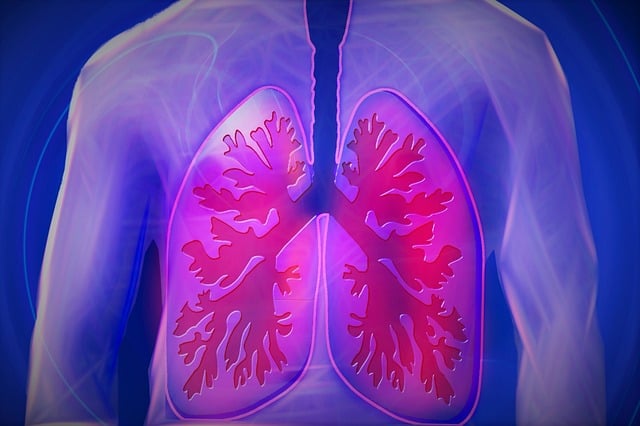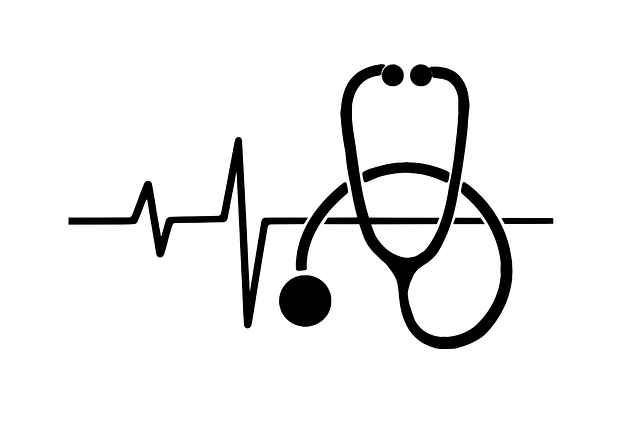Holistic health medicine advocates for natural detoxification centered around diet. This involves consuming whole foods like leafy greens, citrus fruits, avocados and berries rich in antioxidants, fiber-rich veggies, and whole grains to support the body’s natural elimination processes. Meal planning emphasizes unprocessed ingredients with detoxifying properties like turmeric, ginger, lemon, and avocado, balanced macronutrients, and herbs for medicinal benefits. Staying hydrated and consuming high-fiber foods aid elimination while probiotics from fermented foods promote a healthy gut microbiome. Post-detox, maintaining a diet of whole foods, staying hydrated, managing stress, and exercising is crucial for sustained wellness in holistic health medicine.
Looking to detox naturally? Discover the power of diet in holistic health medicine. This comprehensive guide explores how specific foods and dietary practices can support your body’s natural detoxification processes. From identifying nutrient-rich options to incorporating effective meal planning and cooking tips, learn strategies to enhance elimination through hydration, fiber, and probiotics. Embrace long-term dietary habits for sustained results and optimal health.
- Understanding Natural Detoxification: The Role of Diet in Holistic Health Medicine
- Identifying Foods for Detox: A Comprehensive Guide to Nutrient-Rich Options
- Incorporating Detoxifying Practices: Meal Planning and Cooking Tips
- Enhancing Elimination: Hydration, Fiber, and Probiotics
- Sustaining Results: Long-Term Dietary Habits for Optimal Health
Understanding Natural Detoxification: The Role of Diet in Holistic Health Medicine

In the realm of holistic health medicine, natural detoxification goes beyond momentary trends. It’s a profound process that leverages diet as a powerful tool to promote overall well-being. Our bodies naturally possess an intricate system for eliminating toxins, and proper nutrition plays a pivotal role in supporting this innate ability. By adopting dietary changes that align with the principles of holistic health medicine, individuals can enhance their body’s natural detoxification mechanisms.
A holistic approach to health recognizes the interconnectedness of mind, body, and spirit. Diet, therefore, is not just about what we eat but also how it influences our overall vitality. Natural detoxifying diets focus on whole foods, plenty of water, and nutrient-rich options that nourish both the physical body and the intricate ecosystem within us. This holistic health medicine perspective encourages a sustainable lifestyle change rather than fleeting fixes, fostering long-term wellness and a more robust detoxification process.
Identifying Foods for Detox: A Comprehensive Guide to Nutrient-Rich Options

In the pursuit of holistic health medicine, understanding which foods to incorporate for a successful detox is paramount. The key lies in selecting nutrient-rich options that support your body’s natural elimination processes. Focus on whole, unprocessed foods like leafy greens (kale, spinach), citrus fruits (lemons, oranges), avocados, and berries, all renowned for their high antioxidant content which aids in flushing out toxins.
Additionally, incorporate fiber-rich vegetables such as broccoli, cauliflower, and artichokes, as well as whole grains like quinoa and brown rice. These foods not only stimulate digestion but also promote healthy gut bacteria, a crucial component of holistic health medicine. Remember, the goal is to nourish your body with substances that enhance its natural detox mechanisms, paving the way for improved overall well-being.
Incorporating Detoxifying Practices: Meal Planning and Cooking Tips

Incorporating detoxifying practices into your routine is a powerful way to support your body’s natural healing processes, an integral part of holistic health medicine. Meal planning and cooking play a significant role in this journey. Focus on whole, unprocessed foods like leafy greens, lean proteins, and complex carbohydrates. These foods are rich in nutrients that aid in flushing toxins from the system. Incorporate ingredients known for their detoxifying properties, such as turmeric, ginger, lemon, and avocado, into your meals.
When planning your meals, ensure a balance of macro-nutrients. Include healthy fats, like those found in olive oil, nuts, and seeds, to promote satiety and support hormone regulation. Adequate protein is essential for muscle repair and maintaining a stable metabolism. Whole grains provide sustained energy and fiber, aiding digestion and eliminating toxins efficiently. Experiment with various herbs and spices not only for flavor but also for their medicinal properties that can enhance your body’s natural detoxification process, aligning with the principles of holistic health medicine.
Enhancing Elimination: Hydration, Fiber, and Probiotics

Staying hydrated is a fundamental aspect of any natural detox plan, as water plays a vital role in eliminating toxins from your body. Aim for at least eight glasses of water daily to support your kidneys and liver, which are key organs responsible for flushing out impurities. Adequate hydration ensures that your body can efficiently process and eliminate metabolic waste products.
Incorporating high-fiber foods into your diet is another powerful strategy for holistic health medicine. Fiber acts as a natural scrub, promoting regular bowel movements and aiding in the elimination of toxins. Focus on eating plenty of fruits, vegetables, whole grains, and legumes to boost your fiber intake. Additionally, probiotics found in fermented foods like yogurt, kefir, and sauerkraut support a healthy gut microbiome, which is essential for optimal detoxification.
Sustaining Results: Long-Term Dietary Habits for Optimal Health

Maintaining a healthy diet after a detox is crucial for sustaining results and promoting holistic health medicine. It’s not just about returning to old eating habits; it’s about adopting long-term dietary practices that support optimal wellness. Incorporating plenty of whole, unprocessed foods like fruits, vegetables, lean proteins, and whole grains ensures your body receives the essential nutrients needed for balance.
Consistently staying hydrated, managing stress through techniques like meditation or yoga, and engaging in regular physical activity are also integral components of holistic health medicine. These practices work together to reinforce a healthy lifestyle, preventing the return of old habits and ensuring lasting results from your detox journey.
Incorporating natural detox methods through diet is a powerful step towards embracing holistic health medicine. By understanding the role of nutrition in detoxification, identifying nutrient-rich foods, and adopting sustainable dietary habits, you can effectively enhance your body’s elimination processes. Remember that consistent hydration, adequate fiber intake, and the support of probiotics are key to maintaining optimal health and ensuring your body’s natural healing mechanisms remain robust.






